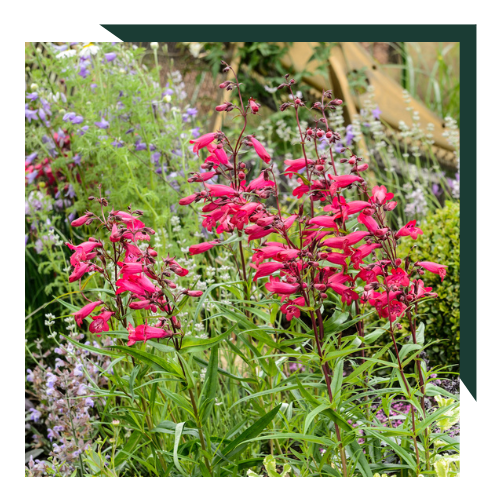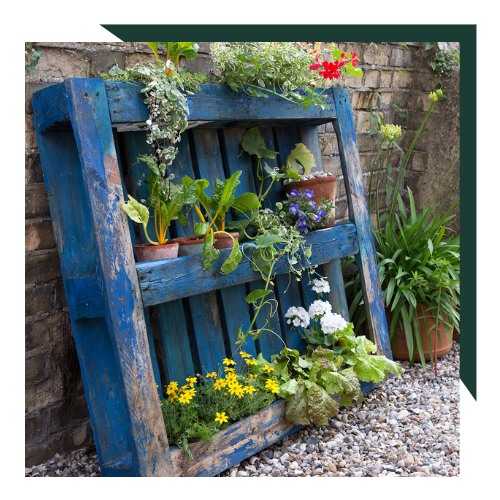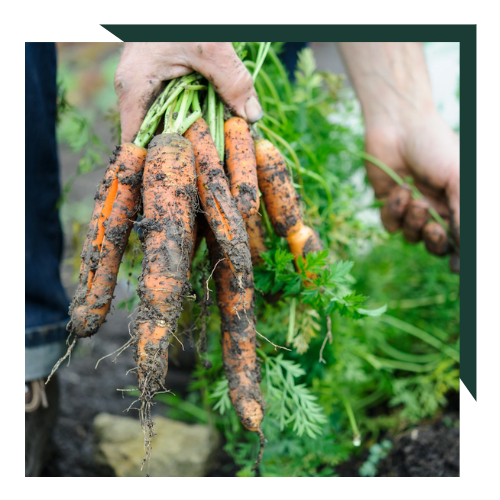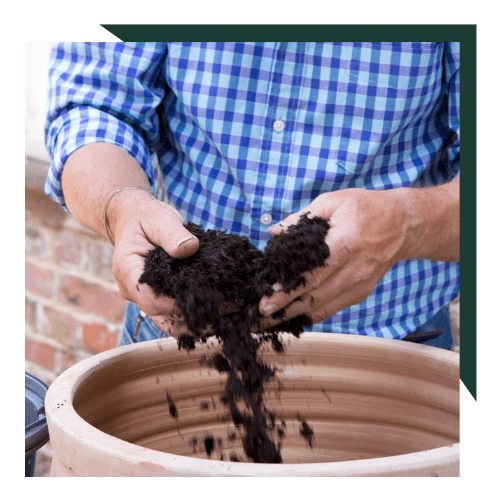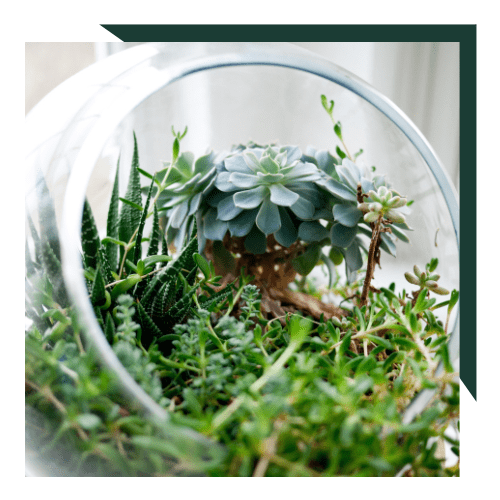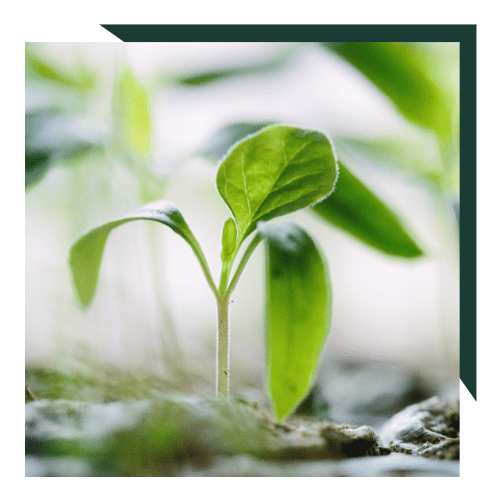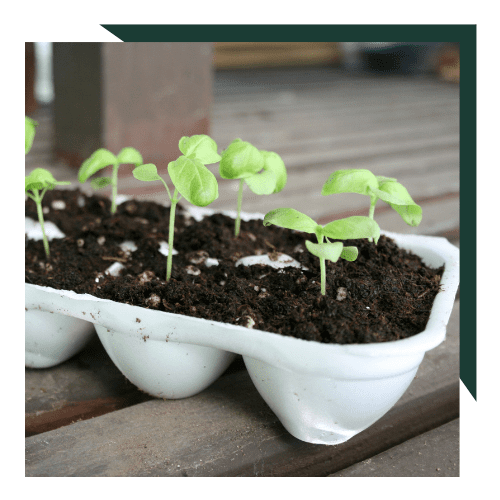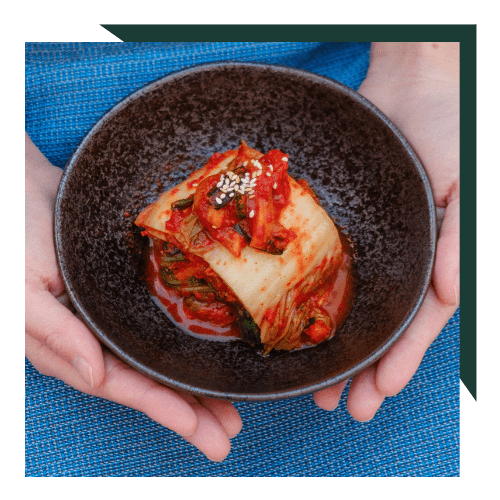Transform Your Wellbeing: 6 Expert Gardening Tips
As gardeners, you probably already know how beneficial gardening can be to health and wellness but there are certain activities when gardening that can be intentionally enjoyed for specific wellness reasons. I first realised how gardening was improving my overall health when I had abdominal surgery which meant months of lonely recovery. The gentle acts of being outside, observing, sowing seeds and pruning were not just helping me to get moving physically, but mentally gave me so much joy. Gradually as I was getting back to the heavier work of building and mulching, I recognised how the garden nurtured me through the process of recovery and that understanding this process gave me the tools to help others find that all important, intrinsic link to nature, through the joy of gardening. And don’t forget that indoor gardening can have many benefits as well, so filling your home with houseplants is also wonderful – there’s always room for one more plant isn’t there?
By Ellen Mary

Here’s a few intentional acts of plant care that can really help wellness:
1. Sowing Seeds
Sowing seeds is a great activity where the magic of gardening can be felt as you clear noise from your mind and focus in on tiny little pieces of joy, so full of hope for the future. Before you sow the seeds you have chosen to grow, feel them gently in your hand. Move some carefully between your fingertips and focus on the sensation. Some seeds are smooth and round, others are flat and silky. There are many different shape and size seeds, each one with its own identity. As you sow each seed focus in on the moment, imagine what each one will become and what it will encounter during its life in order to grow and flourish. This is good practice as not only will you be relaxing as your mind clears to focus on this one moment in time, but your senses will be stimulated as you touch the seeds and watch them as they fall into the compost. Many are fragrant as well, just like the plant they will become. Fenugreek and Coriander are great examples of seeds with scent.

2. Fulfil your senses with happiness
Awakening your senses at any given moment as you step in and through your garden can being such joy. From the cool, morning dew on your bare feet to the alluring fragrance of plants by your patio door. Gardens can be a place to hide away when you need to or enjoy fun, active times with friends and family. Think about how you can stimulate all of your senses and provoke positive emotions. Have you enjoyed an experience in the past that a specific plant reminds you of? Have you any emotions attached to plants such as what you had in your wedding bouquet or perhaps your Grandparent’s favourite flowers. Allow yourself to take a trip down memory. Does the smell of roses remind you of your most loved perfume, or are petunias your parents favourites? Keep in mind these memories when you plan your sensory feast.

3. Incorporating homes for wildlife
Creating a home for wildlife is one of the most wonderful aspects in gardening. Part of this is learning to love the mini creatures that are welcome in your garden. From the excitement of seeing your first bee on your plants to hearing the rustling of a hedgehog, creating a biodiverse garden allows you to connect the cycle of life right before your very eyes. Remembering that we are each nature ourselves and we can choose what kind of impact we want to have on our planet means that connectivity between your being and the garden becomes all the more meaningful.
Many of our garden creatures are great to help with controlling garden pests. Birds eat aphids and toads each slugs, even wasps play a crucial role. Many different elements come together to create an active and vibrant space and it doesn’t matter how big or small your garden is. Making it a haven for living creatures will in turn bring you joy.

4. Observation is key
Take some time out to observe your garden and look closely at your plants, tune in to the sounds you can hear, focus on details and movements, feel the sensations as you touch foliage and relish the taste of edibles on your tongue. Be in the moment where you are entirely aware of your thoughts, emotions and reactions as they arise. We hear the breeze, but are we really ‘listening’ to the sound? As our attention is maxed out in amongst the digital world and distractions of everyday life, it can be an enlightening practice to bring your mind back in to the moment and focus on the natural world around you. The garden brings a host of opportunities to tune in and connect with the natural world for wellbeing. Try this exercise each time you step into your garden:
Take five deep breaths. Inhale through your nose and exhale via your month. Breathe in for five seconds and exhale for ten seconds. Breathe for longer or more times if that feels natural to you.

When you are relaxed focus in on the below;
3 things that you can see
3 things that you hear
2 things that you touch
2 things that you can smell
1 thing that you can taste
These mindful moments can help you take a step away from a busy world and allow yourself time to calm, reset and look after yourself.
5. Companion planting
Just as we thrive with companionship, so do plants. As humans, connection with others is part of who we are and can influence who we become. It is one of the most basic needs for us to be happy and healthy, it deepens our sense of purpose. Companions help us to combat loneliness, boost mental stimulation and a supportive network connection invigorates positive wellbeing. It is important to be around people who look out for you and be there to support you as you grow. And, just like us, not all plants enjoy growing next to each other and, just as it is wise to put some distance between yourself and those who have a negative impact on your life, the same applies to plants.
A few combinations to try:

Marigolds (Tagetes) in any garden can repel whitefly and even carrot root fly plus the spicy scent attracts pollinators who in turn will eat the aphids.
Nasturtiums (Tropaeolum majus) are well known to attract black fly which keeps them off your other plants. Caterpillars will also have a feast, again leaving your other crops alone.
Thyme (Thymus vulgaris) has a scent that deters black fly and possibly white fly from your cabbages, not to mention the flowers are highly attractive to bees.
6. Houseplant care
Looking after houseplants has many benefits for wellness. Not only do houseplants soften a room but bring hope, joy and responsibility. Find some time to not just hurry around and water your houseplants but to also sit amongst them, read, meditate and touch the foliage to see how it feels and look closely at the detail. Give the leaves a wipe and feed or repot as necessary. Getting to know your plants closely is the best way to spot any pests or diseases really quickly. It may well be that plants respond to your touch and voice – so there’s no harm in having a little chat with them either!
* Some of this piece is taken from extracts of The Joy of Gardening; the everyday zen of mowing the lawn by Ellen Mary. Available in all good bookshops and online.
Find Ellen Mary hosting the House Plant Stage every day of Gardeners’ World Live, Birmingham’s NEC, 13-16 June 2024.
BBC Gardeners’ World Events 2024:
- BBC Gardeners’ World Live, 13-16 June at Birmingham’s NEC
- BBC Gardeners’ World Spring Fair, 3-5 May, Beaulieu Hampshire
- BBC Gardeners’ World Autumn Fair, 30 Aug-1 Sept, Audley End House & Garden
* Some of this piece is taken from extracts of The Joy of Gardening; the everyday zen of mowing the lawn by Ellen Mary. Available in all good bookshops and online.



